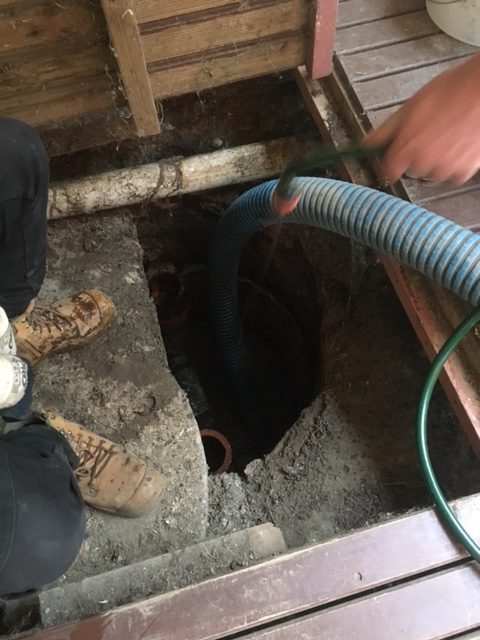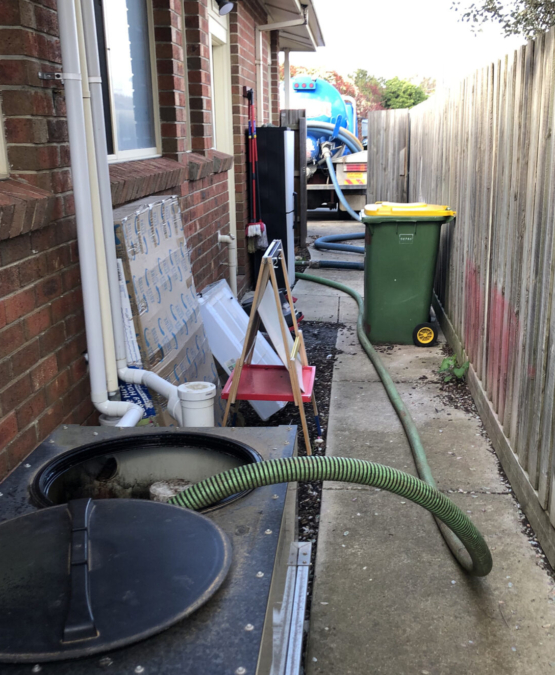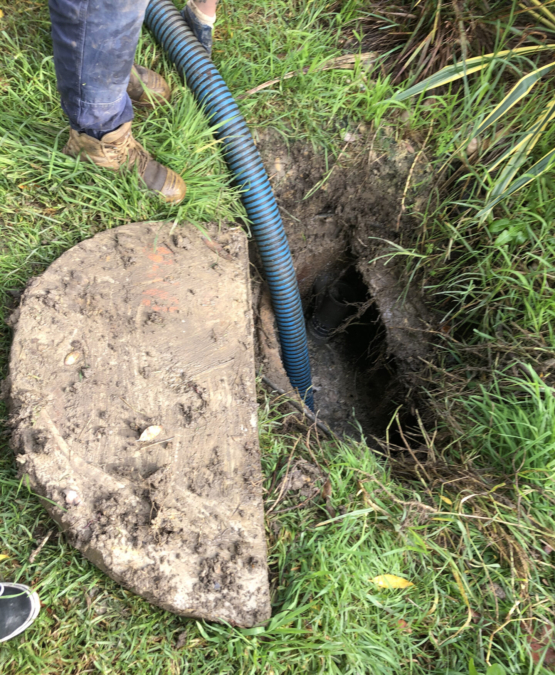- About
- Liquid Waste
-
-
-
-
Other Liquid Waste Services
-
-
- Industrial Cleaning Services
- Industrial Cleaning Services
- Blog
- Contact

Fats, oils, and grease build-up (commonly known as FOG) is a common issue in both residential and commercial kitchens, especially in food service establishments. FOG accumulates when cooking oil, food scraps, and other kitchen waste enter the drainage system. Over time, this build-up can cause serious blockages in grease traps, sewer pipes, and the sewer system. Without proper management, FOG can disrupt your kitchen’s efficiency, increase maintenance costs, and potentially lead to environmental hazards, such as sewer overflows or contamination of local waterways.
FOG build-up not only affects your kitchen’s plumbing, but it can also cause sewer blockages and even sewer overflows. When fats and grease cool, they solidify and stick to the walls of your sewer pipes and drains, creating blockages that prevent the proper flow of wastewater. In serious cases, FOG can cause backups of raw sewage, leading to potential health risks and costly repairs. This build-up also affects the broader wastewater collection system, causing problems for the public sewer main and the environment.

Grease traps are designed to prevent fats, oils and grease build up from entering the sanitary sewer system. They work by slowing down the flow of kitchen wastewater, allowing fats and oils to cool and separate from the water. The grease floats to the top, while solid debris and food waste settle at the bottom. The remaining water is then safely discharged into the wastewater system. Regular cleaning is essential to maintain the trap’s efficiency and prevent the release of fog discharged into the sewer system.

Routine grease trap cleaning is necessary to prevent the accumulation of FOG, which can lead to blockages in your kitchen plumbing and the broader sewer system. For food service establishments and commercial kitchens, regular cleaning helps maintain operational efficiency and ensures compliance with local water authority regulations. Neglecting grease trap maintenance can result in significant issues, such as sewer blockages, sewage backups, and fog accumulation, all of which can disrupt business operations and lead to hefty fines.
Failure to regularly clean your grease traps can lead to a host of costly issues, including high maintenance costs, plumbing repairs, and potential environmental fines. Over time, FOG build-up will increase your maintenance costs as it clogs pipes and disrupts the flow of wastewater. Professional grease trap cleaning services can help mitigate these expenses by ensuring the proper functioning of your grease traps, preventing blockages and overflows.
Engaging professional grease trap cleaning services ensures that FOG build-up is managed effectively, preventing potential sewer blockages and safeguarding your kitchen’s efficiency. A reliable service will not only remove built-up grease, but also develop a customised maintenance schedule tailored to your kitchen’s needs. Professional grease trap services are critical in ensuring compliance with environmental regulations and preventing the negative impacts of improper FOG management.
Maintaining the efficiency of your kitchen requires proactive management of fats oils and grease build up. Regular grease trap cleaning is the key to preventing costly repairs, keeping your kitchen running smoothly, and ensuring compliance with regulations. Let our expert team handle your grease trap servicing needs with precision and care. Contact us today to schedule your grease trap cleaning and keep your kitchen operating efficiently without the hassle of FOG-related issues.